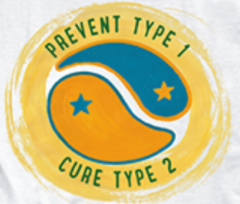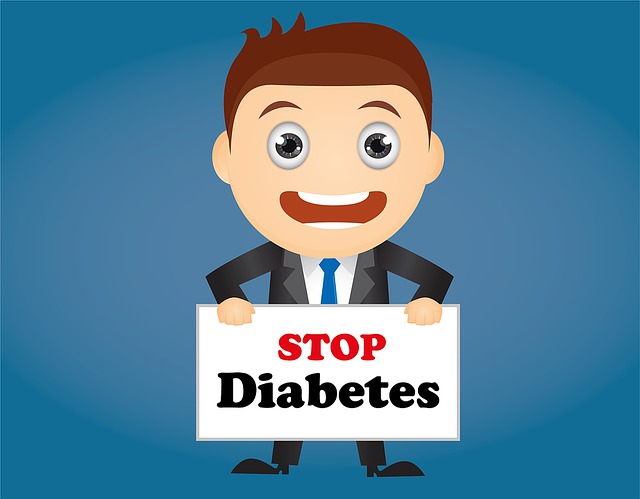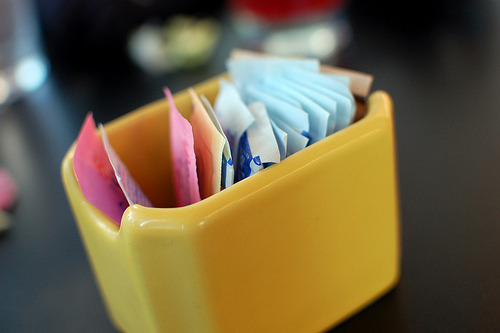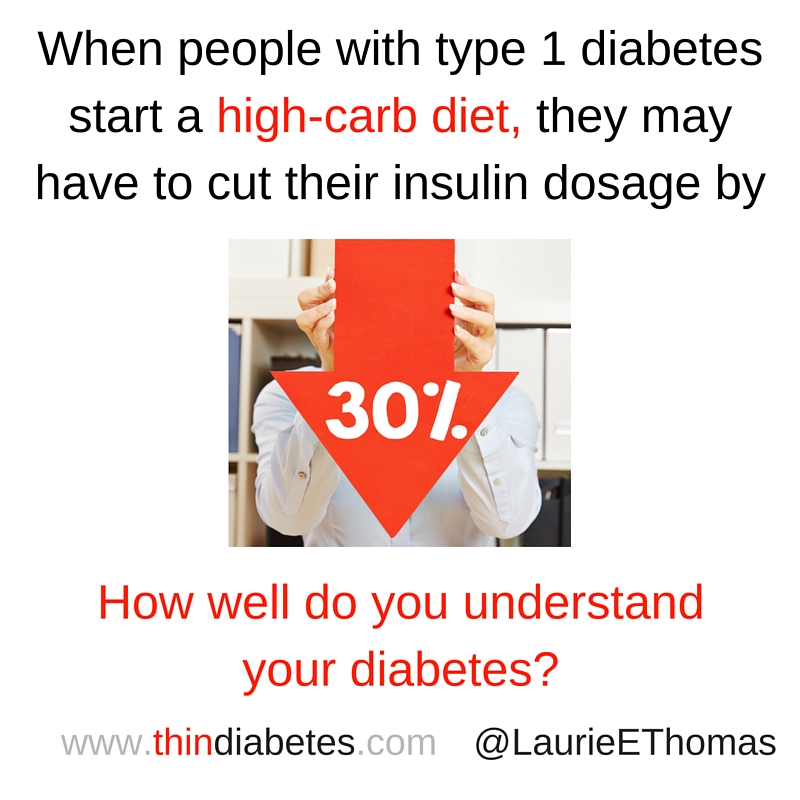In this lecture, diabetes expert John McDougall, MD, explains that type 2 diabetes is 100% curable. Type 2 diabetes is just a way to prevent you from storing more fat in your fat cells. It can be cured by weight loss of any cause. In this video, he explains the best diabetes diet. He explains how to cure diabetes mellitus type 2. Just eat a low-fat vegan diet. For more information about diabetes, see my book Thin Diabetes, Fat Diabetes: Prevent Type 1, Cure Type 2.
Month: February 2017
Aspartame and Diabetes
Many healthy people and many diabetics have questions about aspartame and diabetes. Aspartame (NutraSweet) is a substitute for sugar. It is sweet like sugar, but it has no calories. Aspartame is used as a sweetener in “diet” soft drinks and other “diet” foods. Yet aspartame might not help you lose weight. Nor will avoiding sugar help you control your blood sugar. As I explain in my book Thin Diabetes, Fat Diabetes, the surprising secret to controlling your blood sugar is to eat a diet that is high in carbohydrates (starches and sugars).
Caution: A high-carb, low-fat diet will make your insulin work better. Thus, it can cause low blood sugar in people who are taking insulin or other medicine for diabetes. If you have diabetes or are taking any prescription drugs, talk to your doctor before you make any major change in diet.
A sugar called glucose is your body’s favorite fuel. Some foods, such as grapes, contain glucose. Many fruits and vegetables also contain other kinds of sugar, which can also be converted to glucose. The starches that are found in foods like rice, potatoes, and pumpkins also get converted into glucose. For this reason, a sugary or starchy food will deliver glucose to your bloodstream. Yet if you are healthy, a sugary or starchy meal will not cause you to have abnormally high blood sugar. When a healthy person eats sugars or starches, the pancreas releases a hormone called insulin. The insulin will tell the liver to store glucose. Insulin also allows the heart and muscle to burn glucose for energy. As a result, the blood glucose levels stay in the normal range.
The high blood glucose levels in people with diabetes mellitus result from one of two problems. Either the pancreas is not making enough insulin, or the body is not responding to the insulin that the pancreas makes.
- Type 1 diabetes (thin diabetes) means that your pancreas cannot make enough insulin to keep you alive.
- Type 2 diabetes (fat diabetes) means that your body is resisting the effects of insulin, to keep you from storing more fat in your fat cells. It is really the result of a fatty diet.
- A person can have both problems (insulin shortage and insulin resistance) at the same time.
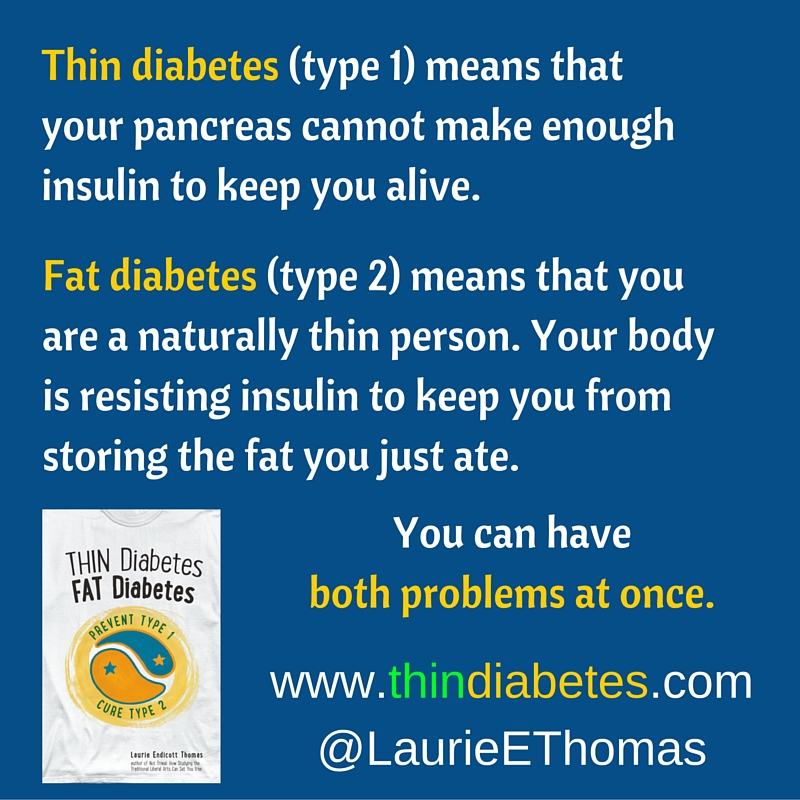 Scientists have known since the 1920s that a sugary, starchy diet makes people more sensitive to insulin. In 1927, a doctor named J. Shirley Sweeney published an important study in the Archives of Internal Medicine (now called JAMA Internal Medicine). Sweeney had recruited a bunch of healthy young male medical students and fed them several different test diets for two days. Then he tested the subjects to see how well they could tolerate a big dose of glucose.
Scientists have known since the 1920s that a sugary, starchy diet makes people more sensitive to insulin. In 1927, a doctor named J. Shirley Sweeney published an important study in the Archives of Internal Medicine (now called JAMA Internal Medicine). Sweeney had recruited a bunch of healthy young male medical students and fed them several different test diets for two days. Then he tested the subjects to see how well they could tolerate a big dose of glucose.
- After the subjects had eaten a high-carb diet, including lots of sugar, their blood sugar levels stayed normal during the glucose tolerance test.
- After the subjects had eaten a fatty, low-carb diet for only two days, they got severely high blood sugar during a glucose tolerance test.
Inspired by these results, Dr. Walter Kempner of Duke University started experimenting with extremely high-carbohydrate diets, initially for patients with kidney disease. He told his patients to eat a diet of white rice, fruit, fruit juice, and pure white sugar. This diet, which came to be called the Rice Diet, helped patients lose weight. It reversed type 2 diabetes, and it reduced the amount of insulin that patients with type 1 diabetes needed to inject. It also improved their overall health.
High-carbohydrate diets help you lose weight by satisfying your appetite. Sugar has a powerful appetite-satisfying effect, especially if the sugar is bound up with fiber and water. For this reason, it is hard to get or stay fat on a low-fat diet based on unrefined starches, vegetables, and fruit. Fat provides practically no satisfaction to the appetite. That’s why it’s easy to get too many calories if you add fat to the diet.
Aspartame was invented to help people lose weight. Aspartame provides the sweet taste of sugar but without supplying calories. Yet the effect of aspartame on appetite and body weight is not entirely clear. Low-calorie sweeteners like aspartame are so sweet that they might desensitize your taste buds. As a result, you may lose the ability to appreciate the milder sweetness of natural foods. In the long run, this suppression of your taste buds could make it harder for you to be satisfied by a reasonable amount of food. Thus, artificial sweeteners may actually make it harder to lose weight. If you want to control your weight, just eat a low-fat, high-carbohydrate diet based on natural plant-based foods. You might even add a little bit of pure sugar.
The Internet is full of terrible rumors about aspartame. Some people claim that aspartame causes multiple sclerosis or brain tumors. (It doesn’t.) They claim that the FDA is corrupt for allowing aspartame to remain on the market. However, many of the people who are spreading these rumors are also selling dietary supplements and herbal products that are of no real value and may be unsafe. In reality, aspartame seems to be remarkably safe, unless you have phenylketonuria. But lots of ordinarily good foods, even human breast milk, are dangerous for people with phenylketonuria.
Photo by Steve Snodgrass 
